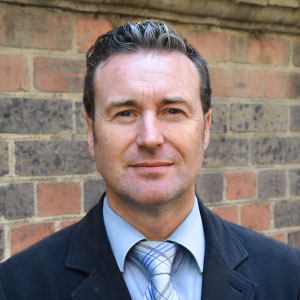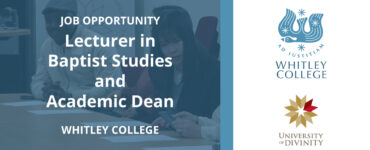Several cultural commentators have claimed that higher education is in “crisis”. What they understand by this predicament often varies, but one thing that frequently emerges is that universities in the English speaking world in particular are suffering an identity crisis. They do not seem to know what they are for, or how they relate to their local or even glocal societies. Quality measurements expressed in tables of university rankings redefine many universities’ missions: to score more points on the board and thereby competitively climb the rankings table.
According to an older translation of Proverbs 29:18 “Where there is no vision, the people perish”. The writer asserts that without being bound by the Law of God which provides flourishing, the society becomes not only diminished but disordered. Something of that vision is articulated in Augustine’s reflections on the rules for Christian reading of the scriptures in De Doctrina Christiana. Reading well requires a series of skills, and these skills are developed from within the Christian traditions and communities past and present. But the fruit of bible reading, he insists, is love. In other words, it is in lives shaped by the dynamic incorporation into God’s gift of the love that the life of God creatively and redemptively shares with God’s creatures. It has been with some delight that I have come to work for a university that articulates its mission as follows: “Together we empower our learning community to address the issues of the contemporary world through critical engagement with Christian theological traditions.” The creation and the consequent launch of the Centre for Research in Religion and Social Policy, the first research centre of the University of Divinity, comes at an opportune time with the shrinking of the business of care for persons in the public space, as care itself becomes increasingly privatised. While issues of the good life, what diminishes it, and what kind of reparative justice is required, take on new forms from context to context they remain live ones. The Centre is well-placed to begin the arduous journey of attempting to raise consciousness of such matters within the public sphere of the universities and beyond, and of doing so from critical engagement with the rich resources for healing that emerge irreducibly from the Christian traditions themselves. It will need to do that in a culture for which traditions such as those of Christianity are increasingly held, at best, in polite disregard or, at worst, in passionate disdain. The networks and partnerships the Centre will develop will be crucial to its success, where by ‘success’ the measure will be the ability to converse beyond the confines of the University seminar room and even beyond the ears of the Christian communities themselves.

John C. McDowell is Professor of Philosophy, Systematic Theology and Ethics, and is Academic Dean at St Athanasius College. Formerly Morpeth Professor at the University of Newcastle NSW and the Meldrum Senior Lecturer in Systematic Theology at the University of Edinburgh, he was Cambridge and Aberdeen educated. A prolific writer, John has published 7 monographs, edited 8 collections, and contributed over 70 peer-reviewed journal articles and book chapters. His research interests coalesce on the issue of hope, and cover disciplinary interests in theology (particularly Karl Barth), ethical philosophy and theology, popular culture and critical theory.






Add comment